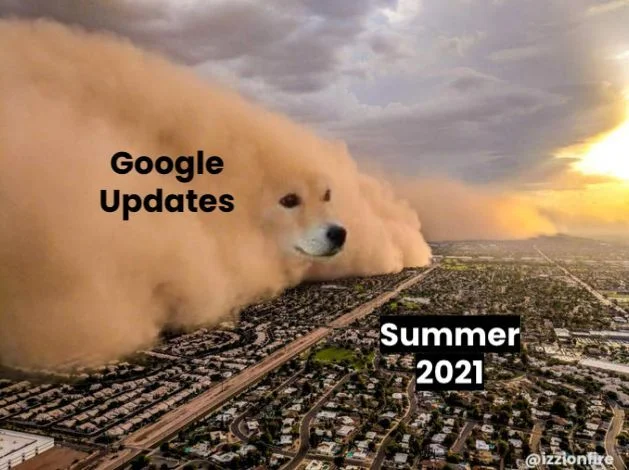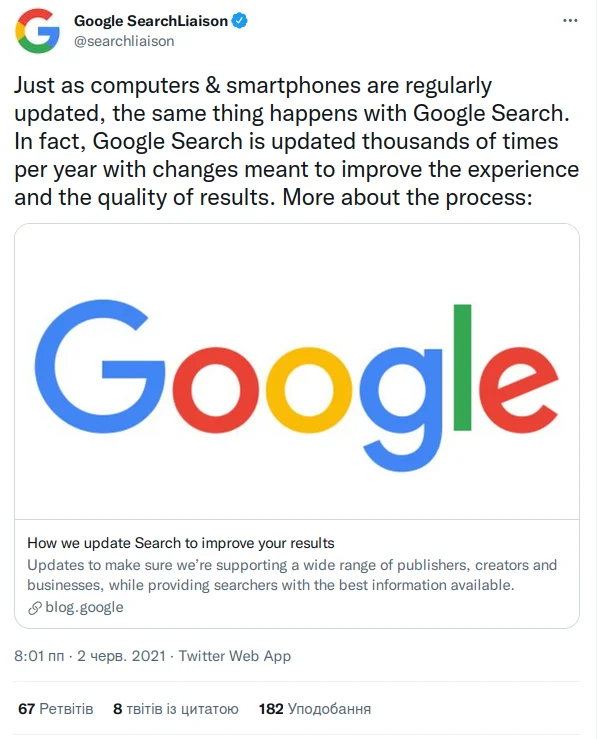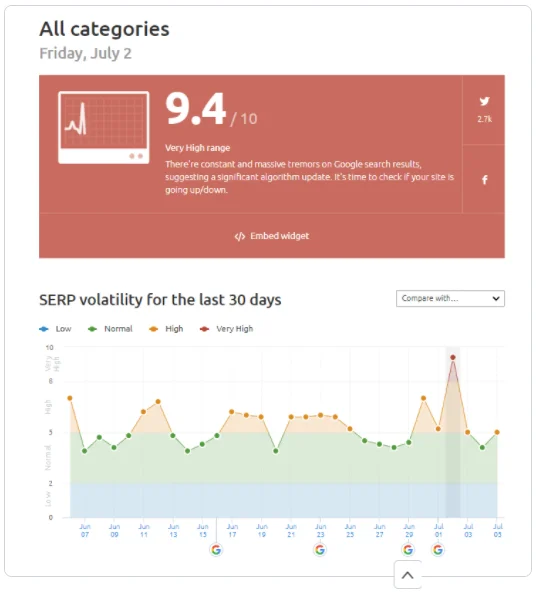Google gave webmasters a busy summer by releasing several major updates to its search algorithms at once. After five new updates in a row (which has never happened), the global IT community breathed a sigh of relief and summed up in the form of an August meme.

Below we will briefly talk about the main updates that seriously affected the position of pages in the issue:
- Google June 2021 Core Update
- Google July 2021 Core Update
- Spam Update (two outputs)
- Page Experience
At the beginning of the summer, Google announced the two-stage implementation of the Core Update — in June and July. Traditionally, the search engine undergoes global updates twice a year aimed at improving search algorithms. This time, the annual update was divided into two parts, since the full package was not ready in June.
Google June 2021 Core Update
The start of the first stage of updates was announced on June 2, 2021 on the official Google SearchLiaison Twitter channel.

The post says: "Computers and smartphones are updated regularly, and so is Google Search. In fact, Google Search is updated thousands of times a year with changes designed to improve the experience and quality of results."
There is also an article on the principles of updates, which you can read in the original.
Google notes that the changes do not apply to any specific sites or regions and are of a global nature.
The June update ran for ten days and ended on the 12th. Industry experts were in no hurry to draw serious conclusions, postponing analyzes until the second issue.
Google July 2021 Core Update
On July 1, Google posted a message on Twitter about the start of the second phase of updates to the search engine's core. The whole process also took 10 days.
The day after the launch of the update, Semrush Sensor recorded a significant jump in fluctuations in search results.

Image source: searchengines.guru
As a consolation to the victims, Google offered to read an article for 2019 with tips on improving the site, which will help maintain positions in the ranking. This shows the unchanged policy of the company: as before, the emphasis is on the quality of the content.
Based on the results of two launches, we can say that the July update only partially continued the June update and definitely did not become its cancellation. They showed different results and touched different sites. Perhaps this is precisely the answer to the question of users, why Google could not wait until July and roll out both updates in one package - they are really two updates, and each had its own goals.
The time required for the implementation of each part, which amounted to 20 days in total, suggests similar conclusions. Previously, global updates took an average of two weeks. So, Google had more plans and tasks than usual - that's why they "didn't have time" to do everything at once.
Spam Update
Another notable summer update is the Spam Update, launched in two phases (June 23 and June 28).
The search network has been aggressively fighting against spam pages, and this year's strategy continues the already established tradition of Google.
PBN networks, gateways and satellites were the first to receive spam updates. Google does not consider these technologies "black" - the problem is rather the quality of such sites, which are made "on the knee" and perform the sole function of redirecting the user to the main domain .
SEO specialists advise developing their satellite sites according to all canons of white sites. They should be made as independent as possible, filled with good content, with a well-thought-out design, so that the doors look organic and do not betray themselves. From a technical point of view, quality hosting , different templates, designs and IP addresses should be used for all elements of the PBN network.
Page Experience
The Page Experience update rolled out from June 15 to the end of August. Its main purpose is to take into account the user-friendliness of pages when ranking.
Changes were introduced gradually, so that webmasters had time to react quickly and make corrections to their resources. To help site owners, Google provides a report called "Page Usability". In addition to basic indicators, it reflects the convenience of the resource for mobile phones, the level of security and the presence of an SSL certificate .
Google always announces updates so that site owners and SEO specialists can track and analyze changes in performance.
At the same time, the search engine's official sites do not disclose exactly which technical nuances are changed in the algorithms — in order to avoid fraud.
Recommendations for site promotion remain unchanged: high quality and uniqueness of content, relevance to keywords embedded in the text, and most importantly, care for users.



